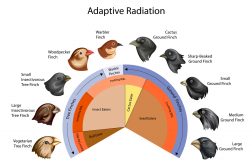Definition
noun, plural: symbionts
An organism in a symbiotic relationship
Supplement
Symbiont is the term used to refer to an organism living in a symbiosis. Symbiosis is a close and prolonged interaction between organisms of different species. Formerly, the term symbiosis is limited to symbionts that mutually benefit from the interaction. This type of symbiotic relationship where both participating symbionts benefit from each other is now referred to as mutualism. Symbionts in mutualism are often interdependent. An example is the hermit crab whose shell offers a niche for anemones to exist in which the anemone can defend the crab with its stinging capabilities. Another example is the interaction between Rhizobia species and the plant legumes. The symbiont Rhizobia fix atmospheric nitrogen to a readily available nitrogen source for use by the legume. In return, the legume provides Rhizobia certain metabolites (e.g. malate and succinate) through photosynthesis.
Other types of symbiotic relationship are parasitism and commensalism. In parasitism, only one benefits whereas the other is harmed. The symbiont benefits at the expense of the host. In commensalism, the symbiont benefits from the host but does not cause benefit or harm to it.
Word origin: Greek symbiont- , symbiṓn, symbioûn” ( to live together)
Synonym(s):
- symbiote
See also:







